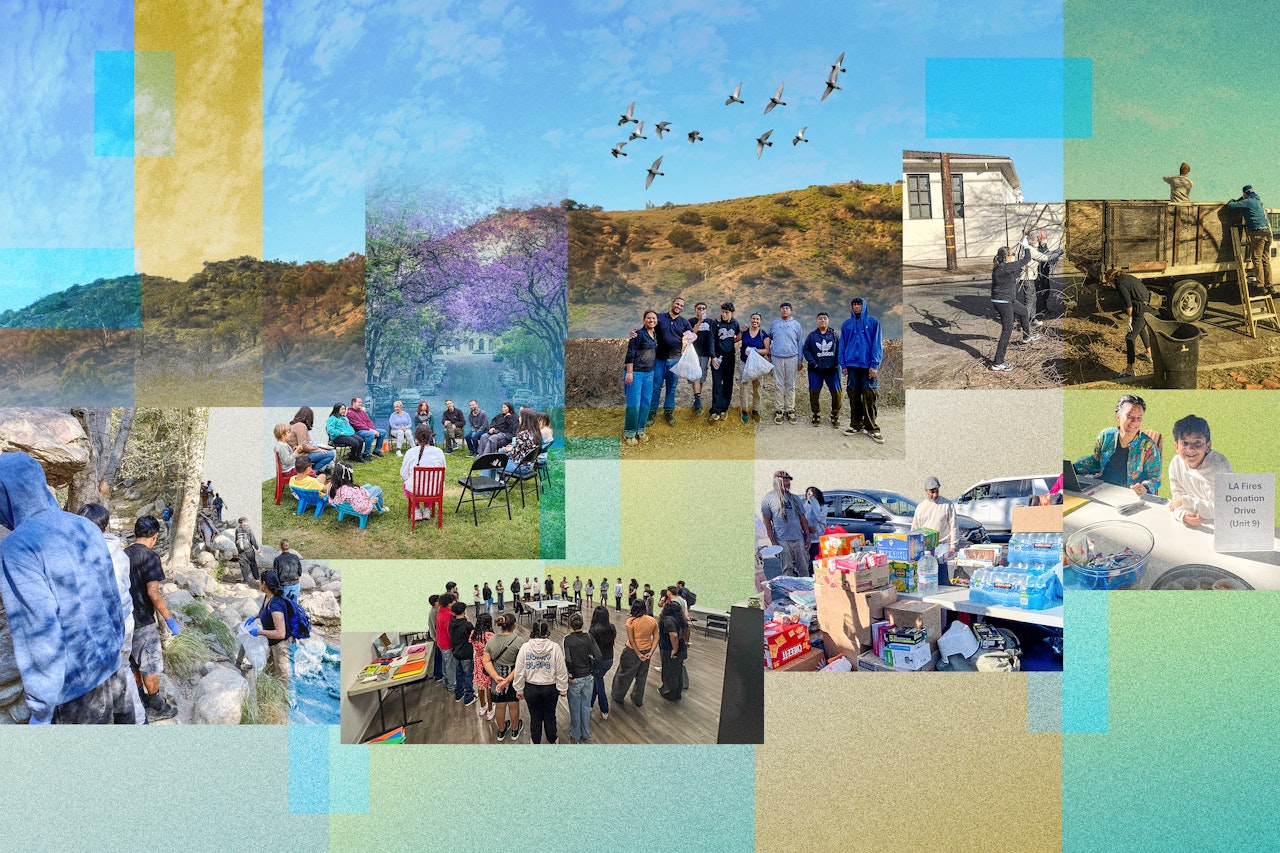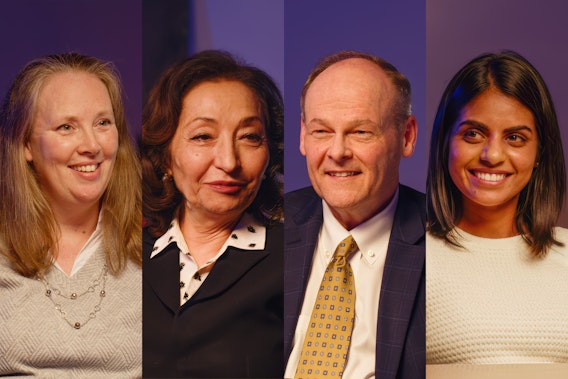Transcending self-preservation
Reflecting on that period, Mr. Chandler added: “It’s easy to assume disaster brings out self‑interest. We saw the opposite. Generosity was everywhere. It gives you hope for humanity.”
In the days that followed the crisis, the Los Angeles Assembly drew on the Bahá’í writings about meeting difficulties with steadfastness and radiance so that the light of assurance overcomes fear—guidance that many said gave them courage to keep serving.
The fires left deep scars on Southern California’s landscape, but they also revealed the quiet strength of neighbors learning together to respond to crisis with unity, prayer, and purposeful action.
As Ms. Ho reflected, “Though the loss was profound, the days that followed revealed something precious: people’s higher nature shone through. Strangers embraced, tears were shared, and kindness flowed. We hope that spirit continues to guide our neighborhoods’ growth.”



